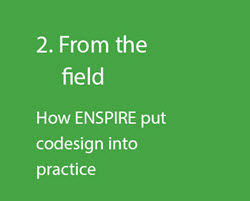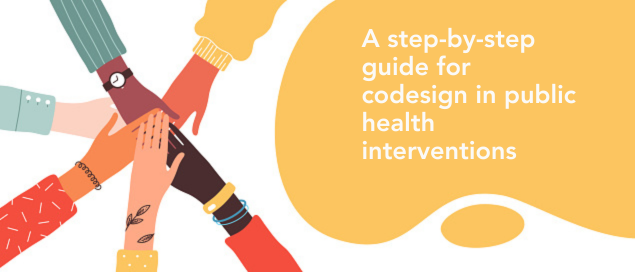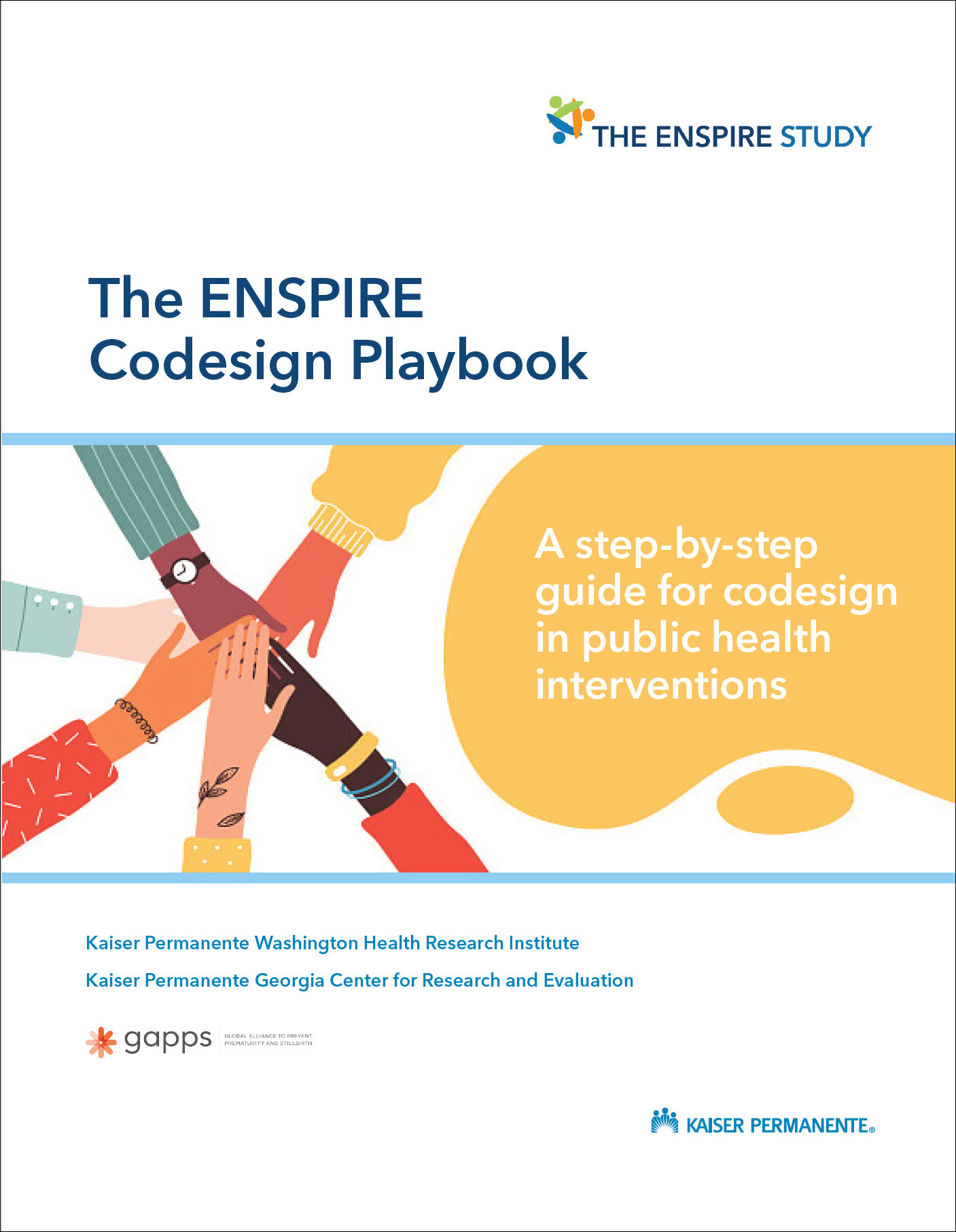The ENSPIRE Playbook
 Welcome to the Playbook
Welcome to the Playbook
The ENSPIRE Codesign Playbook provides:
• A deep dive into how we used the codesign method in the ENSPIRE study
• Sample materials from our project for you to adapt and use
We invite you to draw on our experience when developing your codesign project and process.
For each step in the playbook, we give you:


How our playbook is different
Codesign playbooks and toolkits1,2 often provide a high-level view into planning a codesign project, covering topics such as:
• Building a team
• Framing the problem
• Mapping user experience
• Testing prototypes
• Monitoring and evaluating
These resources usually focus on the strengths of codesign and reasons to use it. In contrast, the ENSPIRE Codesign Playbook provides stepwise instructions for how to implement codesign. We build upon the work of 2 key resources:
• The LINCC (Learning to Integrate Neighborhoods and Clinical Care) project3
• The Community-Led Codesign Kit from the Inclusive Design Research Centre4
These are both excellent sources for advice, instruction, and inspiration. For example, the Community-Led Codesign Kit website includes a remote codesign guide, as well as sections on planning codesign activities and defining roles and responsibilities for codesign sessions.
We hope our playbook is useful to people across a spectrum of professions, organizations, and communities, including those working, volunteering, or creating in:
References
1 “What is Design for Health?” Design for Health, s3.amazonaws.com/files.designforhealth.org/What+Is+Design+for+Health.pdf, accessed September 10, 2024.
2 “Co-design Playbook: Using Integrated Care Partnerships to Design Better Health,” Alberta Health Services, s3-us-west-2.amazonaws.com/transformativelearning/2019/test/Integrated+Care+Partnerships+Guide+DRAFT+1.1.6.9.pdf, accessed September 10, 2024.
3 “Partnering with Patients as Equals in Co-Designing Primary Care: Examples and Tools from the LINCC Project,” Kaiser Permanente Washington Health Research Institute, 2017, kpwashingtonresearch.org/application/files/5615/5866/2635/LINCC_ParteringWithPatientsCareDesign_Final.pdf, accessed September 10, 2024.
4 “Community-Led Co-design Kit,” Inclusive Design Research Centre, co-design.inclusivedesign.ca/, accessed September 10, 2024.





